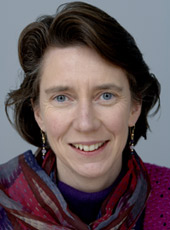|
 Students walk in the University of Oxford. The university in England is cooperating with the Zhejiang University of China on a women entrepreneurship development program. [CFP]
Students walk in the University of Oxford. The university in England is cooperating with the Zhejiang University of China on a women entrepreneurship development program. [CFP] |
Editor's note: Said Business School at the University of Oxford in England recently joined the Global Entrepreneurship Research Center at the School of Management at Zhejiang University to start the Oxford-Zhejiang 10,000 Women Entrepreneurship Certificate Program, part of the Goldman Sachs 10,000 Women Initiative Program, to develop the entrepreneurial skills of women entrepreneurs in China. The first 100 successful candidates recently graduated.
Elizabeth Paris is leading the project and is an associate fellow of Said Business School, University of Oxford. She recently talked with China Business Reporter Liu Jie about the participants, the goal of the program and how it operates.
|

Elizabeth Paris
|
Q: The Oxford-Zhejiang 10,000 Women Entrepreneurship Certificate Program, part of the Goldman Sachs 10,000 Women Initiative Program, was launched earlier this year. Why did the global project choose China as one of its destinations?
A: Goldman Sachs has pledged $100 million over five years to provide a generation of women in under-served areas around the world with a business and management education.
This initiative is grounded in the belief that expanding the entrepreneurial talent and managerial pool in these economies - especially among women - is one of the most important, yet too often neglected, means of increasing economic opportunity.
The initiative is supporting programs in a wide range of countries, including China.
From Said Business School's perspective, China is a very interesting location. The industrial, social and commercial changes going on in China are on an unprecedented scale.
As a leading international business school, we are actively engaged in research and teaching relating to China. Moreover, the University of Oxford has a broad and longstanding relationship with China and recognizes the global significance of Chinese industry and business.
The university has recently established a China Center, which brings together much of its research and activities relating to China. A significant number of academics within the university have research interests in China, and a number of them are working collaboratively with colleagues in China.
Said Business School itself has a developing relationship with Zhejiang University. The Goldman Sachs initiative provided a valuable opportunity for the two institutions to work together to deliver a program for women entrepreneurs in China.
Q: The first 100 women who recently graduated were selected from more than 1,000 applicants. How did you choose the trainees?
A: We were delighted with the level of interest in the program. There was a rigorous selection procedure designed to ensure that the successful scholars had the highest entrepreneurial potential, and that they genuinely required scholarship funding to receive such business and management training.
Zhejiang, Said Business School and colleagues from Goldman Sachs were involved in selecting the participants.
Clearly, there is a need for the sort of educational experience we were providing and a huge appetite among female entrepreneurs within the region to capitalize upon the opportunity offered by Goldman Sachs to achieve success for their businesses.
These women want to do well in business and were prepared to work hard and to study to achieve their goals.'
Q: What about the training they received from the program? Did you have specific courses for them that were different from those offered in other countries?
A: The program was specifically designed for these participants and has been developed with a detailed assessment of the needs of participants.
The program was developed and delivered by the Global Entrepreneurship Research Center at the School of Management at Zhejiang University and by Said Business School.


